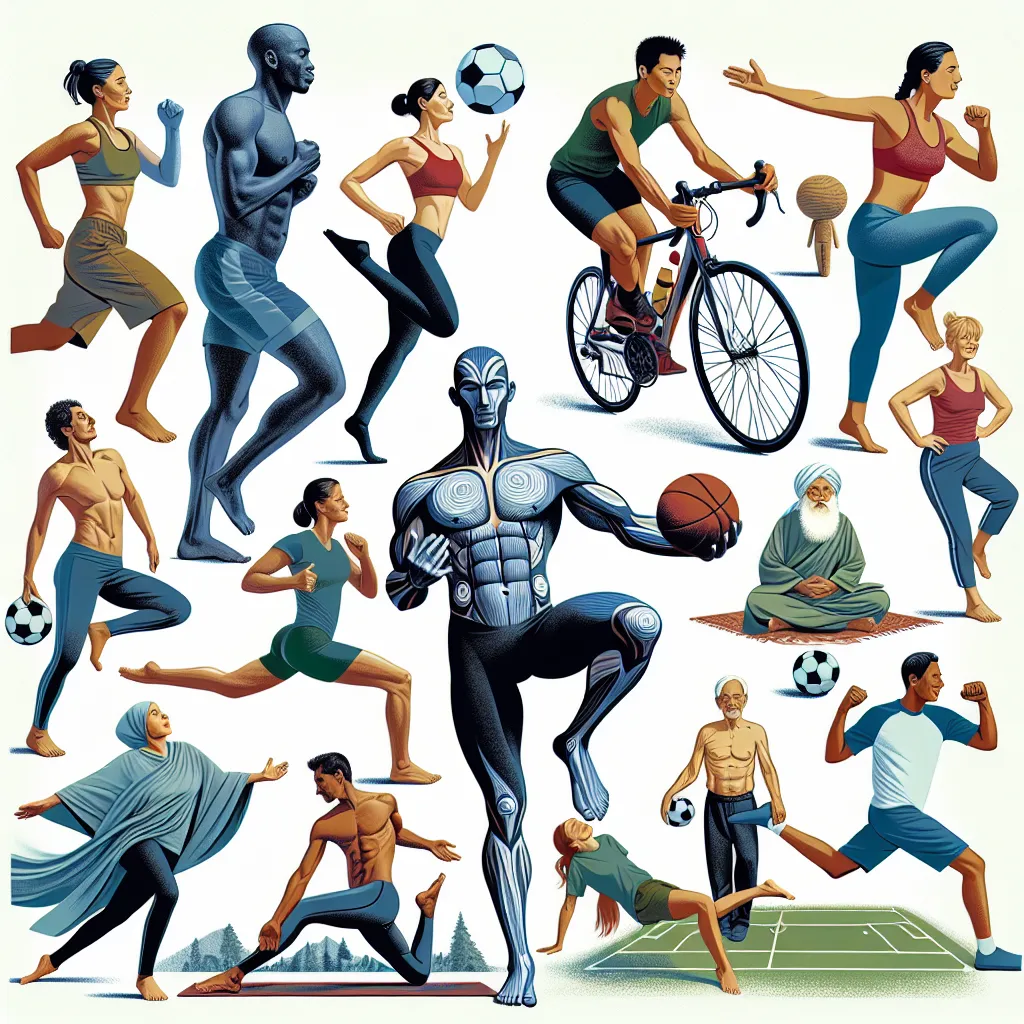As an experienced IELTS Speaking examiner, I understand the importance of being well-prepared for this crucial part of the test. In this article, we’ll focus on a topic that has been gaining traction in recent IELTS exams: describing a person who has shaped your views on social justice. This theme not only tests your language skills but also your ability to articulate complex ideas and personal experiences.
Nội dung bài viết
- Part 1: Introduction and Interview
- Question: Do you think it’s important to help others in your community?
- Part 2: Long Turn (Cue Card)
- Sample Answer (Band 8-9)
- Follow-up Questions
- Part 3: Two-way Discussion
- Question: How do you think social media has influenced people’s awareness of social justice issues?
- Question: Do you think education systems worldwide are doing enough to promote social justice awareness?
- Key Vocabulary and Phrases for High Scores
- Examiner’s Advice
Part 1: Introduction and Interview
In this section, the examiner will ask you general questions about yourself and familiar topics. While the main topic of social justice might not come up directly, related themes could be touched upon. Here are some potential questions and sample answers:
Question: Do you think it’s important to help others in your community?
Band 6-7 Answer:
Yes, I believe helping others in the community is crucial. It creates a sense of unity and makes the place we live in better for everyone. I try to volunteer when I can, like at local food banks or community clean-up events.
Band 8-9 Answer:
Absolutely. I firmly believe that community support is the bedrock of a thriving society. Engaging in altruistic activities not only improves the lives of those in need but also fosters a sense of collective responsibility. Personally, I’m actively involved in several local initiatives, such as mentoring underprivileged youth and participating in environmental conservation projects. These experiences have been incredibly rewarding and have strengthened my connection to my community.
Part 2: Long Turn (Cue Card)
In this section, you’ll be given a cue card with a topic and some bullet points. You’ll have one minute to prepare, and then you should speak for 1-2 minutes on the topic. Here’s a sample cue card related to our main theme:
Describe a person who has shaped your views on social justice
You should say:
- Who this person is
- How you know them
- What they did or said that influenced you
- And explain how your views on social justice changed as a result
Sample Answer (Band 8-9)
I’d like to talk about Malala Yousafzai, the renowned Pakistani activist for female education and the youngest Nobel Prize laureate. While I haven’t met her personally, her story and advocacy work have profoundly influenced my perspective on social justice.
I first learned about Malala through international news coverage of her courageous stand against the Taliban’s efforts to deny girls education in her home region of Swat Valley, Pakistan. Her unwavering commitment to the cause of education, even in the face of life-threatening danger, deeply moved me.
What particularly influenced me was Malala’s resilience and determination. Despite surviving an assassination attempt, she continued her advocacy with even greater fervor. Her famous quote, “One child, one teacher, one book, and one pen can change the world,” resonated deeply with me and made me realize the transformative power of education.
As a result of Malala’s influence, my views on social justice have undergone a significant transformation. I’ve come to understand that education is not just a privilege but a fundamental human right. Her story has heightened my awareness of the global disparities in access to education, particularly for girls in developing countries.
Moreover, Malala’s activism has inspired me to be more proactive in addressing social injustices. I’ve become involved in local initiatives promoting educational equality and have started to advocate for policy changes that support universal access to quality education.
In conclusion, Malala Yousafzai’s courage, eloquence, and unwavering commitment to educational rights have profoundly shaped my understanding of social justice. Her influence has motivated me to be more engaged in social issues and to use my own voice to effect positive change in the world.
 Malala Yousafzai speaking at a podium
Malala Yousafzai speaking at a podium
Follow-up Questions
- How has this person’s influence affected your daily life?
Band 6-7 Answer:
Malala’s influence has made me more aware of educational inequalities. I now volunteer at a local literacy program and try to stay informed about global education issues.
Band 8-9 Answer:
Malala’s influence has permeated various aspects of my daily life. I’ve become more conscious of my own educational privileges and have started actively seeking ways to contribute to educational equity. For instance, I now dedicate time each week to tutoring underprivileged students in my community. Additionally, I’ve incorporated a more global perspective into my news consumption, regularly following updates on educational initiatives and challenges worldwide. This heightened awareness has also led me to make more socially responsible consumer choices, supporting businesses that prioritize ethical practices and contribute to educational causes.
- Do you think individuals can make a significant impact on social justice issues?
Band 6-7 Answer:
Yes, I believe individuals can make a big difference. When people speak up about injustice and take action, they can inspire others and create a ripple effect of change.
Band 8-9 Answer:
Absolutely. I’m a firm believer in the power of individual agency in driving social change. History is replete with examples of individuals who have catalyzed monumental shifts in society’s approach to justice and equality. Take Rosa Parks or Nelson Mandela, for instance. Their individual acts of courage sparked movements that reshaped entire nations. In today’s interconnected world, the potential for individual impact is even greater. Social media and digital platforms have amplified individual voices, allowing people to rally support for causes and challenge systemic injustices on a global scale. However, it’s crucial to recognize that sustained change often requires collective action. Individuals can be the spark, but it’s the collaborative efforts of communities and institutions that often fan that spark into a flame of lasting change.
Part 3: Two-way Discussion
In this section, the examiner will ask you more abstract questions related to the topic. Here are some potential questions and sample answers:
Question: How do you think social media has influenced people’s awareness of social justice issues?
Band 6-7 Answer:
I think social media has had a big impact on people’s awareness of social justice issues. It allows information to spread quickly and lets people see what’s happening around the world. However, there’s also a risk of misinformation spreading.
Band 8-9 Answer:
Social media has undeniably revolutionized the landscape of social justice awareness. Its instantaneous nature and global reach have democratized information dissemination, allowing marginalized voices to be heard and urgent issues to gain rapid visibility. Movements like #BlackLivesMatter or #MeToo exemplify how social media can catalyze global conversations and mobilize masses around social justice causes.
However, this phenomenon is not without its complexities. While social media has amplified awareness, it has also led to what some call “slacktivism” – where online engagement doesn’t necessarily translate into real-world action. Moreover, the echo chamber effect of social media algorithms can reinforce existing beliefs rather than broaden perspectives.
Additionally, the brevity and speed of social media communication can sometimes oversimplify complex issues, leading to superficial understanding. There’s also the challenge of misinformation and the rapid spread of unverified content, which can distort public perception of social justice issues.
In conclusion, while social media has undoubtedly heightened awareness and galvanized action on social justice issues, it’s crucial to approach it critically and complement online engagement with in-depth learning and real-world activism.
Question: Do you think education systems worldwide are doing enough to promote social justice awareness?
Band 6-7 Answer:
I think education systems are trying, but there’s room for improvement. Some schools teach about social issues, but it’s not consistent everywhere. More could be done to include these topics in regular curricula.
Band 8-9 Answer:
While there have been strides in incorporating social justice awareness into educational curricula worldwide, I believe there’s still substantial room for improvement. The approach to promoting social justice awareness in education systems is often fragmented and inconsistent.
In more progressive educational systems, we’re seeing the integration of social justice themes across various subjects, from literature to history and even sciences. This interdisciplinary approach helps students understand the multifaceted nature of social issues. However, this is far from universal.
Many education systems still operate within traditional paradigms that may not adequately address contemporary social challenges. There’s often a hesitancy to engage with controversial or politically charged topics, which can leave students ill-equipped to navigate the complexities of social justice in the real world.
Moreover, there’s a need for education systems to not just teach about social justice but to embody it in their practices. This includes addressing issues like educational inequality, inclusive representation in curricula, and fostering a school environment that values diversity and promotes equity.
To truly promote social justice awareness, education systems need to adopt a more holistic and proactive approach. This could involve mandatory courses on social issues, experiential learning opportunities like community service, and training teachers to facilitate discussions on sensitive topics effectively.
In conclusion, while there are pockets of excellence, on a global scale, education systems have yet to fully realize their potential in promoting comprehensive social justice awareness. It’s an ongoing process that requires continuous evaluation and adaptation to meet the evolving needs of our societies.
Key Vocabulary and Phrases for High Scores
-
Altruistic (adjective) /ˌæl.truːˈɪs.tɪk/ – showing a selfless concern for the well-being of others
Example: Her altruistic nature led her to dedicate her life to helping underprivileged communities. -
Advocate (verb) /ˈæd.və.keɪt/ – to publicly support or recommend a particular cause or policy
Example: She has been advocating for stricter environmental regulations for years. -
Catalyze (verb) /ˈkæt.əl.aɪz/ – to cause or accelerate (a reaction)
Example: The protest movement catalyzed significant changes in government policy. -
Permeate (verb) /ˈpɜː.mi.eɪt/ – to spread throughout something and be present in every part of it
Example: The culture of innovation permeates every aspect of the company. -
Galvanize (verb) /ˈɡæl.və.naɪz/ – to shock or excite someone into taking action
Example: The tragic event galvanized the community into taking action against gun violence. -
Paradigm (noun) /ˈpær.ə.daɪm/ – a typical example or pattern of something; a model
Example: The discovery represented a paradigm shift in our understanding of physics.
Examiner’s Advice
To achieve a high score in the IELTS Speaking test, particularly when discussing complex topics like social justice:
-
Develop your ideas fully: Don’t just give short answers. Elaborate on your points and provide specific examples to support your arguments.
-
Use a range of vocabulary: Incorporate advanced vocabulary and idiomatic expressions naturally in your speech. However, ensure you use them correctly and appropriately.
-
Maintain fluency: Practice speaking on various topics to improve your ability to speak at length without unnecessary pauses or hesitations.
-
Show critical thinking: Especially in Part 3, demonstrate your ability to analyze issues from multiple perspectives and provide balanced viewpoints.
-
Use appropriate structures: Employ a mix of simple and complex sentence structures to showcase your grammatical range.
-
Stay relevant: Always ensure your answers are directly addressing the question asked.
-
Practice active listening: Make sure you fully understand the examiner’s questions before responding.
Remember, the key to success in the IELTS Speaking test is not just about language proficiency, but also about effective communication of ideas. Regular practice and exposure to a wide range of topics will help you feel more confident and perform better on test day.


